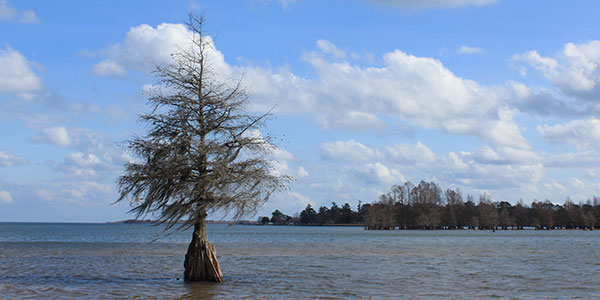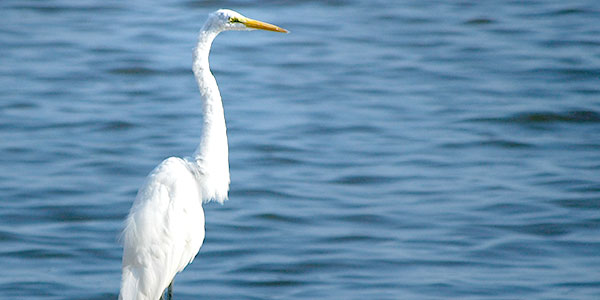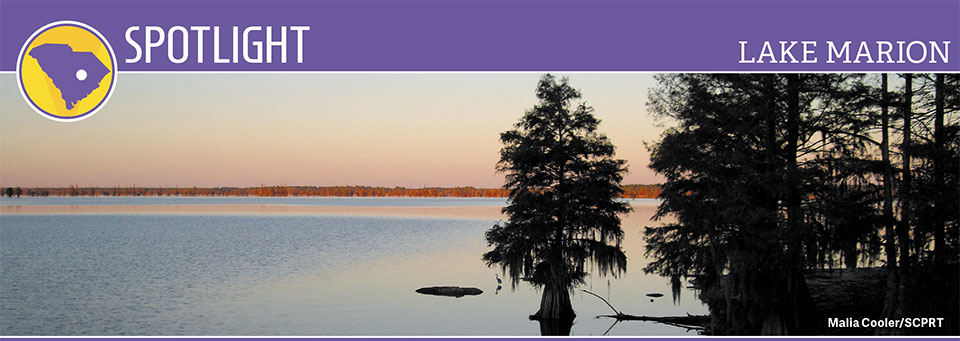Lake Marion
Walk on the Palmetto State’s wild side
The largest lake in South Carolina was created by damming up the Santee River in 1939. The reservoir that resulted was named Lake Marion and eventually became a major tourist attraction, drawing campers, anglers and nature enthusiasts to experience the forests, mountains and fishing of the Palmetto State.

Iempleh
Lake Marion in History
Lake Marion is named after Revolutionary War Gen. Francis “Swamp Fox” Marion, whose army eluded British forces by hiding out in the region’s wetlands. At 172 square miles, the lake sprawls across five counties. Much of the lake’s attractions are centered in Santee Cooper Country, considered among the state’s premier tourism areas.
One of the lake’s most distinctive features can be attributed to Pearl Harbor. As the reservoir began filling, crews set about clearing trees from the area so that boaters would be unimpeded. But those efforts were scrapped after America’s entry into World War II in 1941, which sapped labor for the war effort. Today, the live cypress and dead tree stumps left behind make the lake a modern-day fisherman’s dream, as the submerged trunks form an excellent habitat for species that include crappie, bream and catfish. Visitors can enjoy more than 500 miles of shoreline and travel by RV—or boat—to one of the many nearby towns that include Santee, Summerton, Vance and Eutawville.

April Rembert/SCPRT
Room to Roam
Take your pick of activities on Lake Marion. Sailing, fishing, boating, kayaking, canoeing are just a few of the examples. And then, there is the wildlife. Lake Marion is home to eagles, fox and osprey.
Santee State Park sits on the banks of Lake Marion, sweeping across more than 2,500 acres with hiking trails, picnic areas, fishing piers and a marina. Other amenities include a tennis court and a community meeting building named Village Round, which features a large, screened-in grilling area.
For more wildlife viewing, visit the 13,000-acre Santee National Wildlife Refuge, among the largest wetlands in the eastern United States supporting migratory birds. The refuge, established in 1941, is located on the north shore of Lake Marion. Ducks and geese use it as a major wintering area.
For More Information
Clarendon County Chamber of Commerce
803-435-4405
www.clarendoncounty.com
South Carolina Department of Parks, Recreation and Tourism
866-224-9339
www.discoversouthcarolina.com




